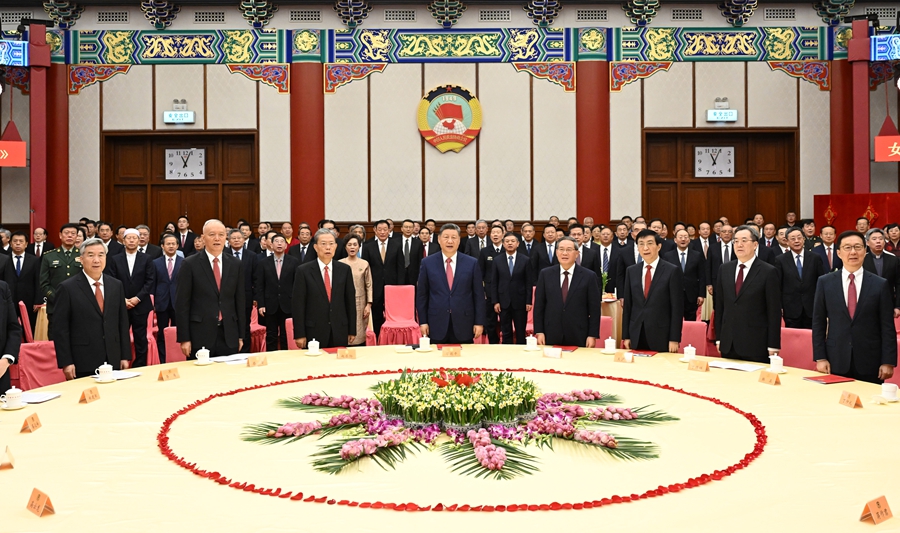ST. PETERSBURG CENTER-RIGHT SPLITS OVER MATVIENKO.
ST. PETERSBURG CENTER-RIGHT SPLITS OVER MATVIENKO.
As St. Petersburg prepares for gubernatorial elections, scheduled for May 14, the atmosphere is becoming more confrontational, pitting the city’s political circles against the federal center. The main factor in the rising tension is the Kremlin’s decision to put forward Valentina Matvienko, the government’s social minister, as “its candidate” when it was assumed that the two main contestants would be incumbent St. Petersburg Governor Vladimir Yakovlev and former Prime Minister Sergei Stepashin. Practically all of the region’s right and center-right forces had rallied around Stepashin as their choice to challenge Yakovlev. Stepashin, however, dropped out of the race–a decision observers believe was the result of Acting President Vladimir Putin’s direct intercession.
Yet the Kremlin’s apparent assumption that Matvienko would easily replace Stepashin has proven wrong. Matvienko does not suit the most influential of St. Petersburg political structures, and Stepashin’s withdrawal has split the center-right coalition. While the federal leadership of the pro-Putin Unity party, the Fatherland-All Russia coalition and the Union of Right-Wing Forces (SPS) have all endorsed Matvienko, in St. Petersburg itself only the local branch of the Fatherland movement has clearly come out behind her candidacy. Indeed, it appears that Moscow’s actions have only weakened Matvienko’s position in the run-up to the St. Petersburg vote, while increasing tensions with the region as a whole, and between and within in various political organization. While Yabloko’s federal structure has not commented on Matvienko’s candidacy, its St. Petersburg organization, which enjoys great support in the city, has not only failed to endorse her, but last week put forward its own candidate–Igor Artemev (National News Service, March 14).
Likewise, the political groups belonging to the local branch of the SPS have not rushed to endorse Matvienko, ignoring the position of the coalition’s federal leaders. The SPS’s local leaders, including State Duma Deputy Yuli Rybakov, charge that Matvienko only began to seek out contact with them and other democrats at the very last minute. Anatoly Chubais, head of United Energy Systems, Russia’s energy monopoly, and one of SPS’s top leaders, went to St. Petersburg last week to try to convince the local members to back Matvienko (Nezavisimaya gazeta, March 14). Chubais was reportedly unable to solve the problem completely, although he did manage to get the St. Petersburg SPS members to soften their position somewhat. They refrained from putting forward their own candidate, and their consultations with Matvienko continue. This leaves open the possibility that they will endorse her in exchange from promises of posts in her future government.
Even in the absence of an SPS candidate, Matvienko faces two challengers for the votes of St. Petersburg’s right-leaning electorate–Yabloko’s Artemev and Yuri Boldyrev, deputy head of the federal Audit Chamber and head of his own political group, the Yuri Boldyrev Bloc. Boldyrev’s position was weakened by the recent murder of Dmitri Varvarin, a major St. Petersburg businessman and a sponsor of Boldyrev’s bloc. Boldyrev, however, remains one of St. Petersburg’s most popular politicians.
The Kremlin, meanwhile, is not only trying to soften opposition to Matvienko, but has begun openly attacking Yakovlev, whose rating remains two to three times higher than Matvienko’s and who continues to enjoy the support of St. Petersburg’s business circles (Russian agencies, March 15; Delovoi Petersburg, March 17). Last week, Boris Gryzlov, leader of Unity’s faction in the State Duma, met with Yakovlev, after which he accused the incumbent governor of threatening the Kremlin with a low turnout in St. Petersburg for the March 26 presidential election if Putin’s team refused to withdraw its support from Matvienko. Yakovlev categorically denied Gryzlov’s accusation and, in a televised address, called on St. Petersburg residents to go to the polls on March 26 (Russian agencies, March 14; Radio Ekho Moskvy, March 16). The attack on Yakovlev, however, did not cease. The Interior Ministry announced the first results of its investigation into allegations of high-level corruption in the St. Petersburg administration, involving a company which allegedly has ties to Yakovlev.
Yakovlev is one of Russia’s more influential regional leaders, who has been one of the heads of Fatherland-All Russia, and other regional leaders cannot be happy about the campaign against him, seeing it as an object lesson on what might happen to them. Thus some of them have come to Yakovlev’s defense. Belgorod Oblast Governor Yevgeny Savchenko, for example, last week openly declared his support for the St. Petersburg governor (Russian agencies, March 14). Regional leaders in Karelia have also publicly defended Yakovlev.
There are no guarantees that the Kremlin’s plans for St. Petersburg will be successful. Moscow-based public relations experts have a poor record in getting their candidates elected in regions where the candidates are opposed by the regional authorities, even if those candidates are backed by the Kremlin. This raises the prospects for “neutral” candidates not directly involved in the conflict. An example of this is what happened in Moscow Oblast, where State Duma Speaker Gennady Seleznev lost the governor’s race to State Duma Deputy Boris Gromov, even though Putin openly backed Seleznev. However, if Matvienko were to lose in St. Petersburg, it would be Putin’s first major loss as an elected president. The Kremlin is therefore likely to go to great lengths to make sure she wins.
TITOV SAYS THE SPS IS CLOSE TO SPLITTING.


